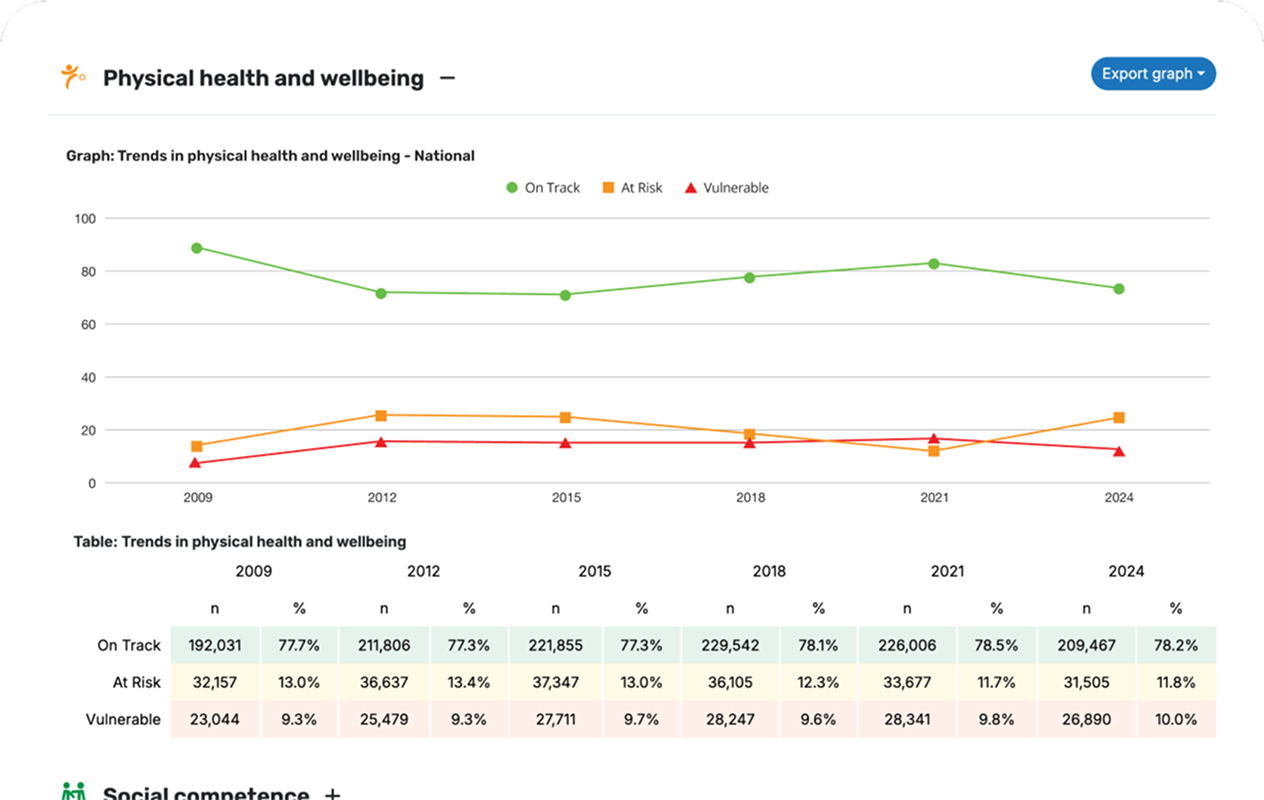Occurring nationally every three years since 2009, the AEDC is one of the most comprehensive collections of this kind in the world. It collects valuable information about how children in Australia are developing by the time they start their first year of full-time school.
The AEDC aims to inform public policy and practice to improve the wellbeing of children and families.
Research priorities are endorsed by the AEDC National Committee, the governance body for the program. These priorities provide a point of reference for the broader community, researchers and policy makers to use, and contribute to, the AEDC evidence base. This is achieved through published research, community action, data linkage and/or access to the data.
The research priorities are:
- Enhanced linkages of the AEDC data with other data sets to better understand the drivers of early childhood development, in the home, in the community, and in early childhood education and care settings.
- Identification of the nature and influence of factors that will support Closing the Gap Target 4: Aboriginal and Torres Strait Islander children thrive in their early years.
- The experience of children with disability: Developmental vulnerability of children with special needs and how data analysis of these children’s experience can inform the National Disability Strategy.

Community Data Explorer
Navigate the AEDC Community Data Explorer and understand the data.
